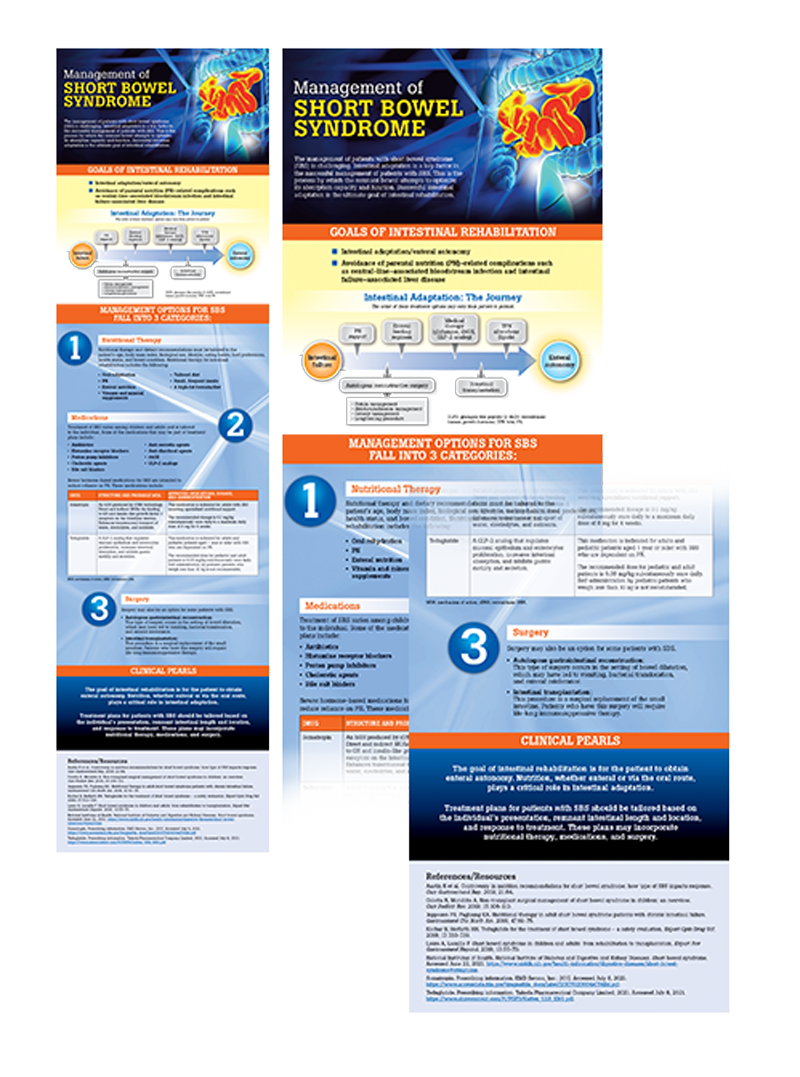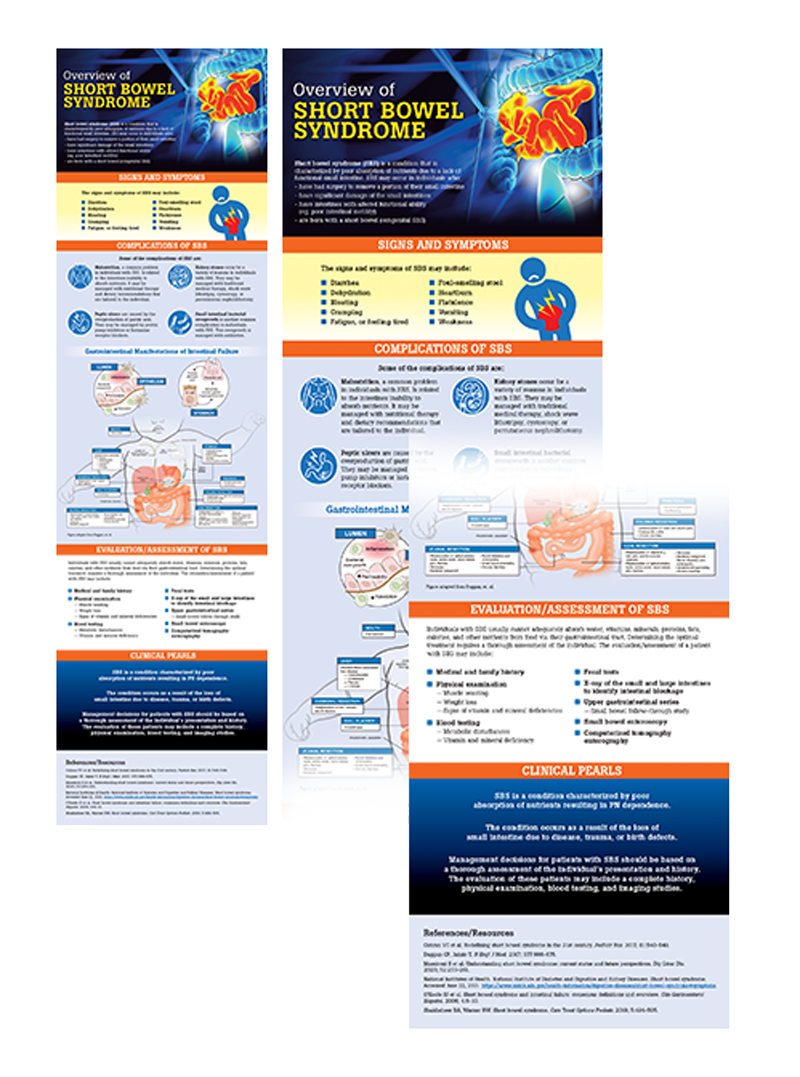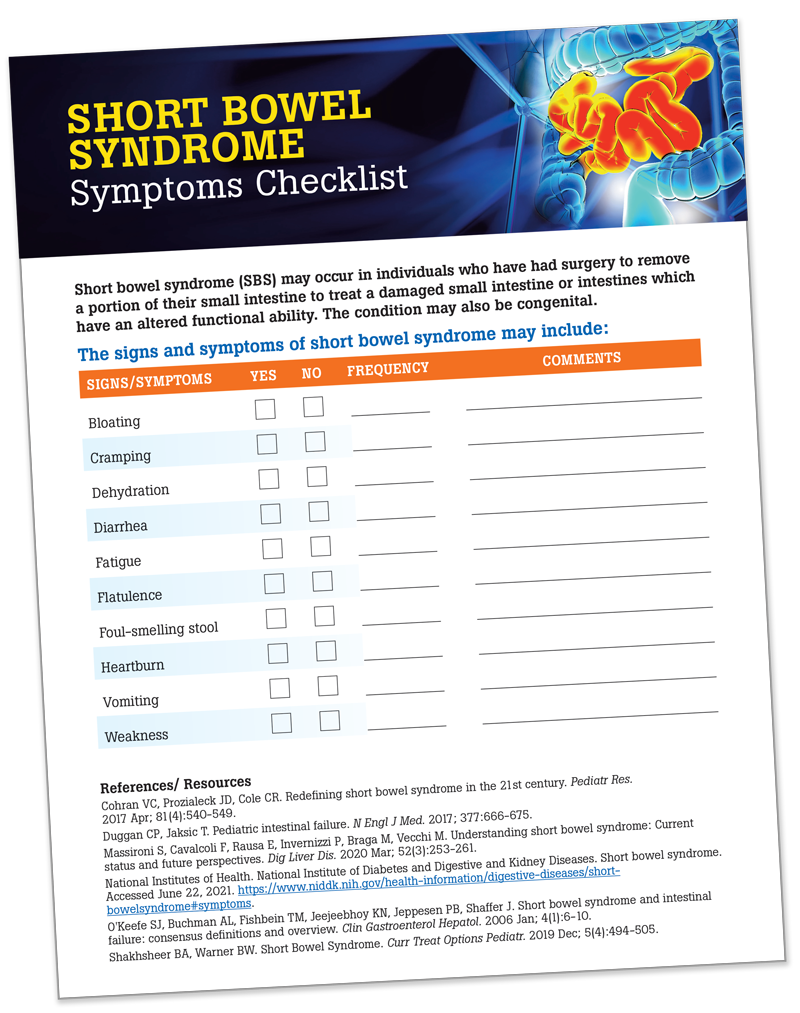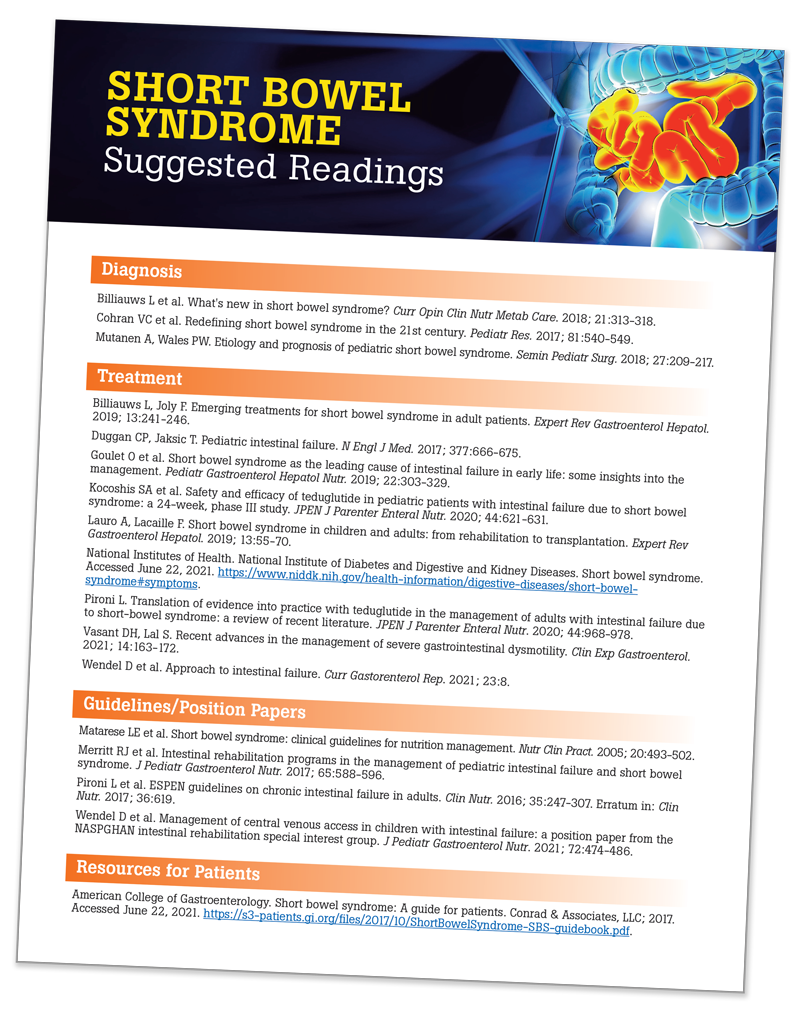Resources
A collection of guides, tools, and resources specifically, and independently, designed for clinicians and patients, with the goal of fostering improved outcomes in SBS.
Infographics
Practice Resources
Usable tools to enhance your practice.
Care Team

Primary Care Provider
MD/DO, NP, PA; may be a general medicine, gastroenterologist, neonatologist, surgeon, or adult internal medicine practitioner
Assessment
- Initial diagnosis
- Screening for comorbidities
Management
- Basic management
- Development of the treatment care plan
- Maintenance/follow-up/treatment adjustment as needed
- Consults specialists for nutritional support, surgery, etc, as needed
- Provides patient/caregiver education

Surgeon
MD
Assessment
- Preoperative assessment/management
Management
-
Performs autologous bowel reconstruction procedures, transplant surgery, etc.
-
Postoperative management

Nursing
NP, RN
Assessment
-
Identifies barriers to care
-
Evaluated nutritional status assessment/compliance
-
Evaluates medication adherence
-
Review’s medication side-effect assessment/monitoring
Management
-
Case management
-
Coordinates transitions of care
-
Coordinates intestinal rehabilitation programs
-
Patient/caregiver education, specifically related to aseptic central line care, enteral tube management, and other aspects of short bowel syndrome (SBS)–specific care

Dietitan
Registered Dietitian (RD) or Registered Dietitian Nutritionist (RDN)
Assessment
-
Nutritional status assessment and monitoring
-
Reviews dietary requirements
-
Reviews adherence to diet
-
Evaluates gastrointestinal, chewing, or swallowing problems/concerns
-
Assesses mealtime dynamics and schedules
-
Determines parental nutrition requirements
Management
-
Provides meal plan recommendations
-
Manages enteral tube feedings
-
Manages vitamin and mineral supplementation
-
Suggests recipes, ideas for meals and snacks
-
Provides resources for managing diarrhea and diet-related side effects
-
Patient/caregiver education

Patient/Caregiver
Assessment
-
Reports symptoms
-
Reports dietary adherence
-
Reports medication adherence and response to treatment
-
Reports SBS effects on quality of life, sleep quality, activities of daily living, and social activities
Management
-
The patient/parent/caregiver is the center of the team (includes family, friends, and advocates)
-
Active participant in developing plan
-
Works closely with the team to derive a plan and suggests adjustments over time
-
Implements plan on a daily basis, titrating treatment according to disease activity

Other Team Members
- Pharmacists
- Social workers
- Psychologists
- Interventional radiologists
- Occupational/physical therapists
- Speech/feeding therapists
References
- Avitzur Y et al. Impact of intestinal rehabilitation program and its innovative therapies on the outcome of intestinal transplant candidates. J Pediatr Gastroenterol Nutr. 2015; 61:18-23.
- Beath S et al. Collaborative strategies to reduce mortality and morbidity in patients with chronic intestinal failure including those who are referred for small bowel transplantation. Transplantation. 2008; 85:1378-1384.
- Belza C, Wales PW. Multidisciplinary management in pediatric ultrashort bowel syndrome. J Multidiscip Healthc. 2020; 13:9-17.
Furtado S et al. Outcomes of patients with intestinal failure after the development and implementation of a multidisciplinary team. Can J Gastroenterol Hepatol. 2016; 2016:9132134.



